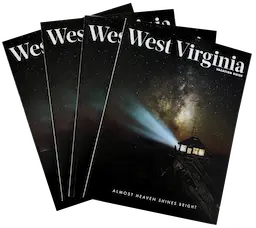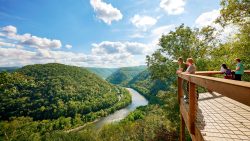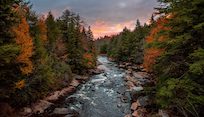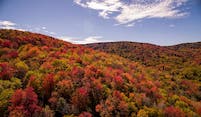6 times West Virginia was vital to the Civil Rights Movement
West Virginia has been the centerpiece of several key events in African-American heritage– dating all the way back to before it was a state.
Here are 6 times the Mountain State was vital to the civil rights movement in the United States:
1. John Brown’s Raid
The 1859 raid on the arsenal at Harpers Ferry was a spark that ignited the American Civil War. John Brown (1800-1859) was an abolitionist who devoted himself to eliminating slavery. He organized a group of men to raid the U.S. arsenal at Harpers Ferry, Va (now WV), hoping to start an armed slave revolt.
Troops under Col. Robert E. Lee caught up with them 2 days later. 10 of Brown’s men were killed in the firefight, and the rest were captured. Brown was convicted for murder, treason and insurrection and hanged.
Although the uprising failed, tensions between the North and South escalated until the Civil War began just 16 months later. Today the arsenal– known as John Brown’s Fort– is one of several historic stops at Harpers Ferry National Historical Park.
2. Williams v. Board of Education
John Robert “J.R.” Clifford (1848-1933) was a founding member of the Niagara Movement, the forerunner to the NAACP. Clifford was born in Williamsport, Va, near present-day Moorefield, WV. He was publisher of The Pioneer Press from 1882 to 1917, which was longest-running national weekly newspaper dedicated to African-American issues during that era.
In 1887 he became the first African-American admitted to the West Virginia State Bar, and in 1898 he won a landmark civil rights and education case, Williams v. Board of Education. Clifford argued on behalf of teacher Carrie Williams against the Tucker County Board of Education’s decision to shorten the school year for African-American children, while keeping a full term for white students. His victory before the West Virginia Supreme Court of Appeals strengthened equal education rights statewide.
3. Tuskegee Institute
A noted educator, author, orator and adviser to U.S. presidents, Booker T. Washington (1856-1915) became the first leader of Tuskegee Institute, a historically black college in Alabama. He was born into slavery in Virginia, but after emancipation the family settled in Malden, where young Booker worked in the salt furnaces and coal mines to earn money for his education.
In 1895, Washington gained national fame with his speech, known as the “Atlanta compromise,” calling for black progress through education and entrepreneurship. He was also instrumental in lobbying the state legislature to put the newly authorized West Virginia State University in the Kanawha Valley.
4. The Niagara Movement
The Niagara Movement was a black civil rights organization named after its first meeting place in Niagara Falls, Ontario. The movement’s second meeting– its first on U.S. soil– was arranged by West Virginian J.R. Clifford at his alma mater, Storer College, in Harpers Ferry in 1906.
During the 3-day gathering, attendees walked from Storer College to the Murphy family farm, where John Brown’s fort had been relocated. They had a ceremony of remembrance of Brown’s quest to end slavery. The historically black college, which operated from 1865 to 1955, is now part of Harpers Ferry National Historical Park.
5. The Father of Black History
Historian, author and publisher Carter G. Woodson (1875-1950), the “Father of Black History,” spent his formative years in West Virginia. Woodson was an advocate of black history in a time when some were trying to erase it. He wrote several famous publications, and started Negro History Week, which is now Black History Month.
A graduate of Douglass High School in Huntington and Berea College in Kentucky, Woodson was principal at Douglass before traveling the world to teach. He eventually earned his doctorate degree from Harvard. He returned to West Virginia later as the Dean of West Virginia Collegiate Institute (now West Virginia State College) from 1920-22. A life-sized statue memorializes Dr. Woodson on Hal Greer Boulevard in Huntington.
6. First female African-American Legislator
In 1928, Minnie Buckingham Harper (1886-1978) became the first African-American woman in the state legislature in the U.S.
A native of Winfield, she was living in Keystone when Governor Howard Gore appointed her to fill her husband’s unexpired House of Delegates term after his death. She was supported by a unanimous recommendation from the McDowell County Republican Executive Committee.
Her role as a state delegate became symbolic of both the growing influence of women in American politics and African-Americans in southern West Virginia politics during the 1920s.
What else have you learned about history and heritage in West Virginia?
This post was last updated on July 21, 2020








